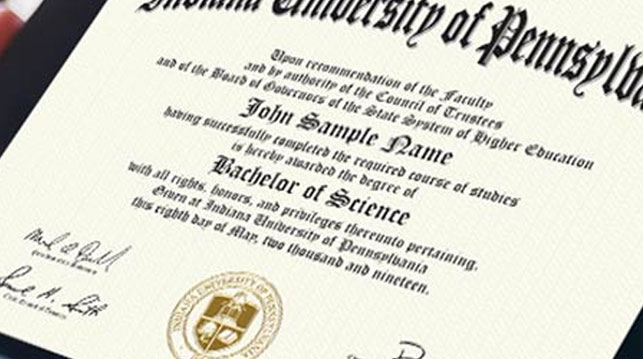
It’s that time of year: classes are winding down, graduations are happening, and folks of an academic bent worldwide are thinking about the next steps in their careers.
For many, that means writing a PhD program application.
The most critical part of a PhD application is the research proposal and accompanying letter. These elements explain just what you plan to do for the next three to five years of your life, how you’ll contribute to the goals and recognition of the department you’re applying to, and why, exactly, you want to do something as crazy as pursue a PhD in the first place.
1. Follow the Directions
This is first for a reason. Go to the website for the department, find out what they want in your application package, and then follow that To The Letter.
 They want a three-page outline of your dissertation plan? They limit you to 1,500 words? They want a cover letter or personal statement explaining your motivations?
They want a three-page outline of your dissertation plan? They limit you to 1,500 words? They want a cover letter or personal statement explaining your motivations?
Do it. Give the admissions committee exactly what they ask for. If you’re having trouble keeping your proposal within a set word count limit, consider hiring a professional editor to trim things down without losing focus.
Get a free sample proofread and edit for your PhD application.
Two professional proofreaders will proofread and edit your PhD application.
Admissions committees want to know that you’ll be easy to work with and that you’re open to feedback and instruction. Use a checklist to make sure you do everything they say.
2. Know Your Audience
Choosing where to do your PhD has a huge impact on the rest of your academic and professional career, and the school you choose may be less important than the department and supervisor.
Do your research; make sure that the department has at least two people doing work related to the specialty you’ve chosen and that they’re currently accepting new doctoral students. Check the research being done by potential advisors. Does it line up with what you’re proposing? You’ll get better support from the department and your advisor if your work aligns with what they’re focusing on themselves.
Reach out to your potential advisor and introduce yourself. This doesn’t have to be a big production; just state that you’re considering your PhD options and you’re intrigued by what they’re working on. Ask some questions about their interests and projects.
Later, when you’re writing your actual proposal, you can include this information to help the admissions committee understand how you’ll contribute to the department’s goals.
For example, if you’re applying for a psychology doctorate and the department already has many cognitive psychologists and is looking to expand their social psychology group, you may want to emphasize how your planned research could fit in with that working group.
3. Keep Things Reasonable
It’s tempting to try to change the world with your work—and, by extension, with your PhD application. But it’s more important to demonstrate that you understand reasonable limits to what you can get done in three or four years of study.
Give yourself some limits. Keep your proposal to just two or three clearly defined research questions with a scope that you can expect to complete in a few years of hard work. In other words, don’t propose a 25-year longitudinal study on the movie-going habits of millennials. Scale back to something like exploring the links between millennial movie-watching choices and dating status.
4. Organize Thoughtfully
Be sure to organize the proposal well. Naturally, any guidelines or templates from the department take precedence here (see Tip #1!), but if you don’t have any other instructions, default to a standard academic structure for your proposal, such as:
Doing this allows you to show that you’re on top of things. You know the key players in your field, what existing research has been done on your topic, and where there might be gaps you can fill. It also shows that you’ve thought about how you plan to structure your research and how familiar you are with standard research practices.
The section on contributions to the field can show the original value of your planned research. Remember: academia is all about recognition (i.e., publishing and making contributions to the field). Clearly state in your proposal how your research can help enhance the department’s status by adding to the body of knowledge in a certain area.
5. Let Your Passion Shine
Research proposals are, by necessity, kind of dry. But no one wants to work with someone who’s just going through the motions. PhDs are really, really hard; they demand great commitment, energy, and drive. Departments want students who absolutely love what they’re doing. Those are the people who will push through the stress and challenges to produce a great dissertation.
Use your personal statement to show that you’re not going to give up when the going gets tough because you love your subject that much. It’s okay to include personal anecdotes here: Are you seeking a doctorate in neurobiology so that you can help people like your grandfather who has Alzheimer’s? Do you want a PhD in literature because you fell in love with Shakespeare at age fourteen and have been obsessed with understanding Titus Andronicus ever since?
Be enthusiastic. Think of this as a job interview on paper, and be open about expressing why you want to devote the next few years—and at least the beginning of your professional life—to your field and your topic.
Good luck!
Kate S.
Get a free sample proofread and edit for your PhD application.
Two professional proofreaders will proofread and edit your PhD application.
Get a free sample proofread and edit for your document.
Two professional proofreaders will proofread and edit your document.
We will get your free sample back in three to six hours!